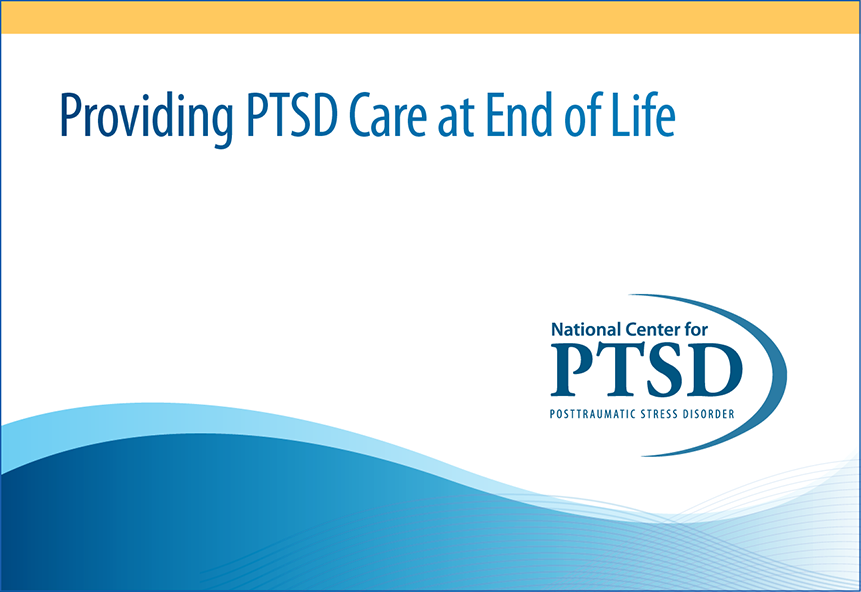Providing PTSD Care at End of Life
Continuing Education
This section brings together free in-depth Continuing Education resources for the Professional community concerned with trauma.
Providing PTSD Care at End of Life
- Date Created: 02/ 6/2025
- Time to Complete: 1 hour
- Credits: ANCC, APA, ASWB, ACCME, NBCC, Other Orgs
- Skill Level: Intermediate
- Course Series: PTSD 101, PTSD Consultation Lecture Series
 Author(s):
Author(s):
Description
Patients receiving health care at end of life (EOL) may receive palliative and/or hospice care. One task of end-of-life care is to help patients have a death that involves minimal pain and suffering as well as optimal emotional well-being and quality of life, as defined by the patient. For patients with pre-existing PTSD, some may have had chronic symptoms, and others may experience a flare of symptoms during EOL, either of which can complicate the dying process for patients and their loved ones.
Clinically-based suggestions can be combined with limited research to identify emerging best practices. This online course for interprofessional health care teams will help clinicians working with patients at EOL to think through how PTSD may present at end of life, and how they may assess for and help patients address PTSD in this unique context.
Goals and Objectives
- Describe how PTSD may present in the context of end-of-life care
- Identify what assessment may look like at end of life
- Discuss treatment and management considerations for PTSD at end of life


























